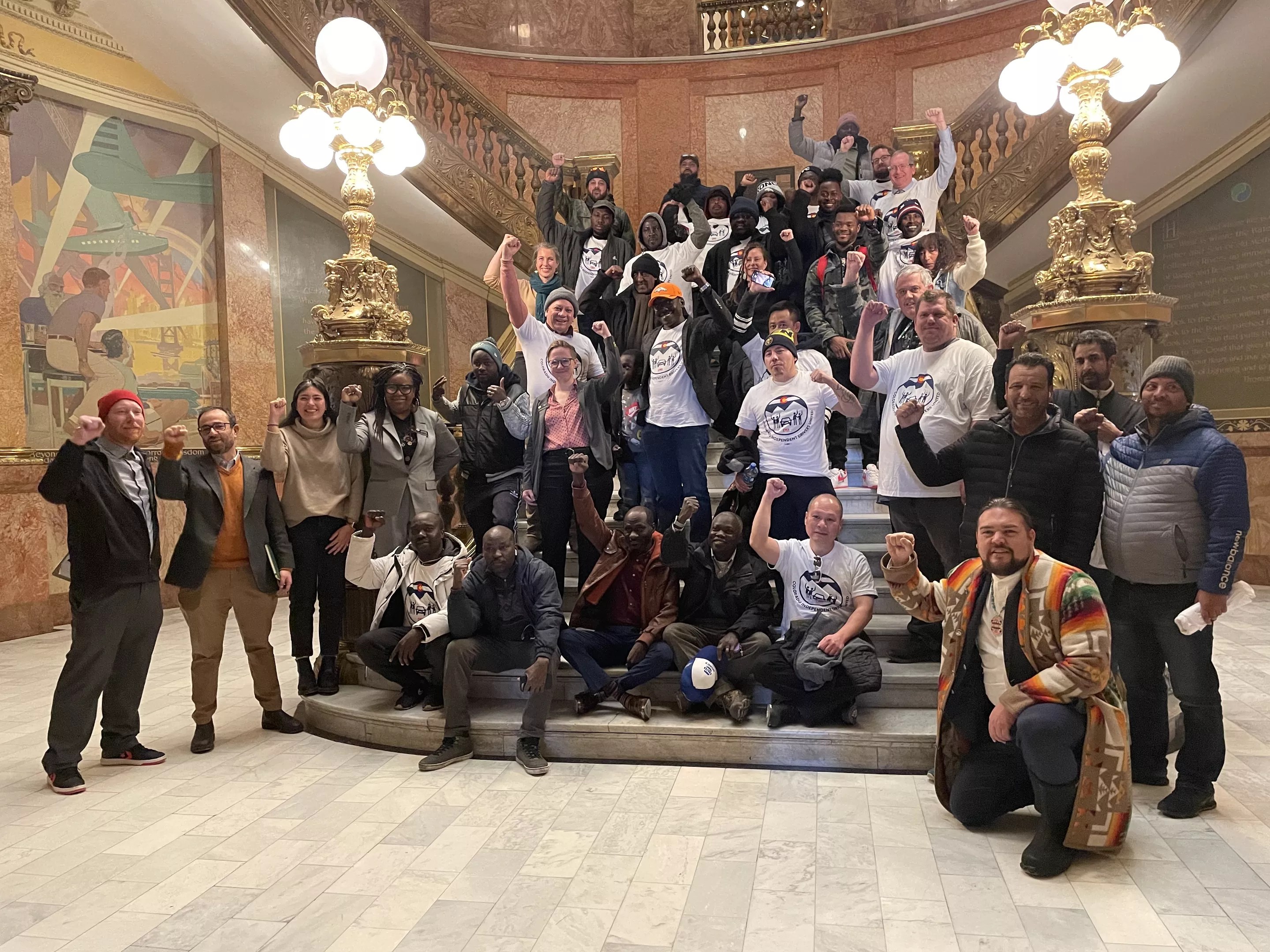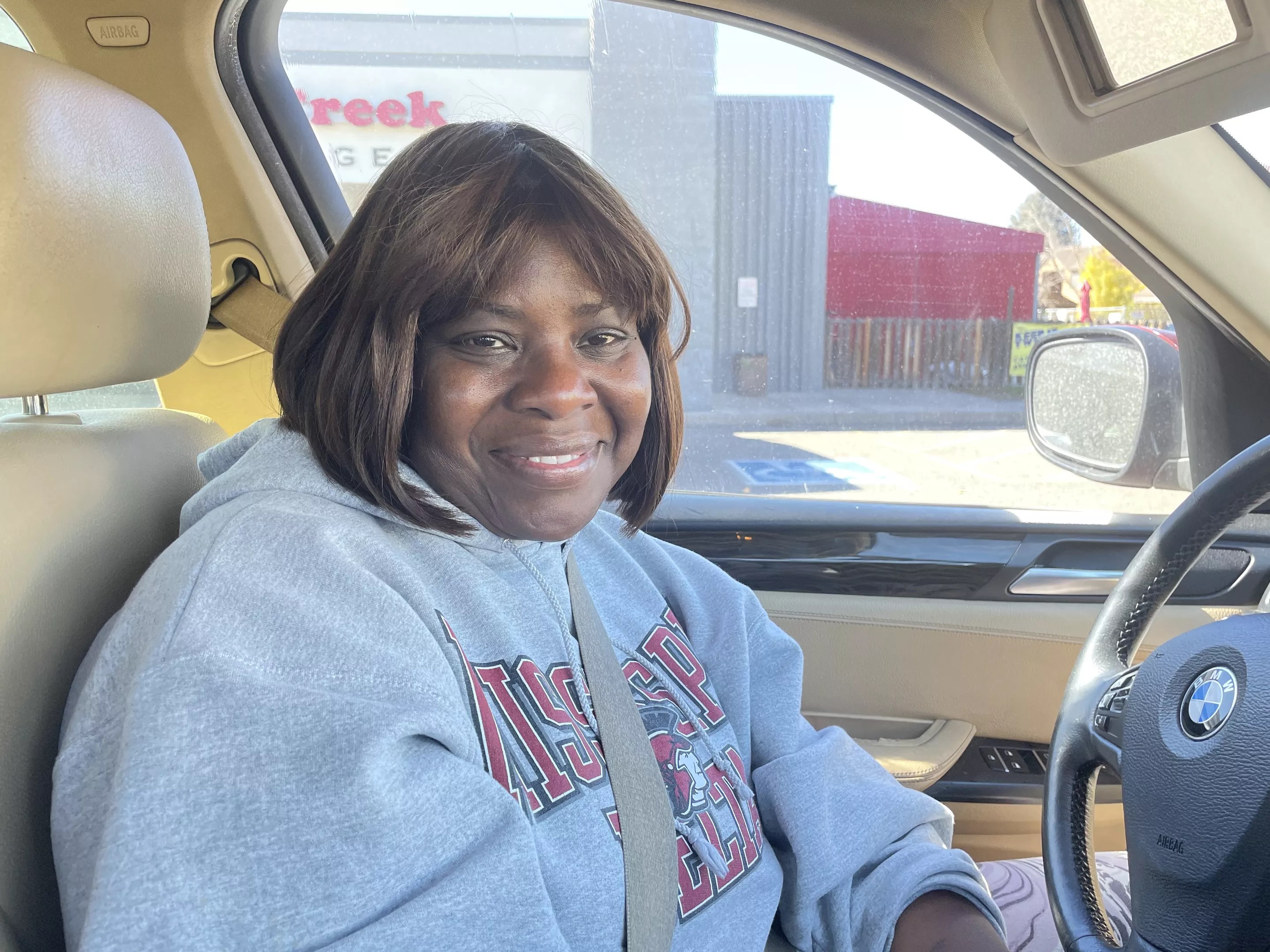
Catie Cheshire

Audio By Carbonatix
It’s the end of the road for the Gig Work Transparency bill, which would have allowed rideshare drivers and customers in Colorado to know how much those drivers – and the companies they work for – will earn for each trip.
The bill, SB23-098, was officially killed in the Senate Finance Committee on May 2.
“This was a just a real blow and a big disappointment,” says Sandra Parker-Murray, a DoorDash driver who spent the legislative session lobbying for the bill. “I never would have imagined that it wouldn’t pass.”
Parker-Murray is a member of Colorado Independent Drivers United – a union of rideshare workers vying for better conditions for drivers in the state. The main concerns of CIDU members are the lack of transparency regarding how much they will make on a potential trip, and driver deactivations, which they contend occur regularly and without cause, leading to a loss of drivers’ livelihood.
The bill would have addressed these problems directly had it passed as introduced in January.
Parker-Murray and other members of CIDU, however, won’t be kept down – not even for one day.
Union members are striking today to voice their outrage. Participating drivers will rally at the Denver International Airport Commercial Lot from 3 to 7 p.m. to spread awareness about the unfair treatment they face.
“I know that they’re probably angry because they spent a lot of time – lost time when they could have been driving – down at the Capitol to talk to legislators,” Parker-Murray says of her fellow drivers. “It seemed like it wasn’t fruitful, but we have to continue to motivate them and let them know that this is just the beginning. This is not the end. We will keep fighting.”
Drivers are asking the companies they drive for – be it Uber, Lyft or any other gig economy driving app – to take less of what they charge customers and give more to drivers. While rates have risen for customers, drivers have not seen a comparable increase in pay, they contend.
Had the Gig Work Transparency bill passed, that process would have started with mobile app disclosures to both drivers and customers about how much the driver and the company are each making on a given trip.
By May 2, the bill had been cut down to leave that transparency – and only that transparency – on the table after starting out with much broader provisions addressing unfair deactivations and levying fees on gig driving companies for their actions.
The compromises weren’t enough to get Democratic Senators Kevin Priola and Kyle Mullica’s approval to make it through the Senate Finance Committee, however.
“There’s no doubt that we have to be better,” Mullica said during the May 2 meeting. “I say that with, hopefully, the industry listening in. There’s not another option other than to be better. Unfortunately, with Senate Bill 98, I’m not sure if we’re able to get there.”
Mullica said he would like to see the companies work with drivers toward improvement, and would support the bill next session if nothing changes by then. Priola said he plans to be part of that work as well, but that it was too late in the session to get the legislation where it needed to be.
Along with the Republican members of the committee, their no votes added up to a 5-2 defeat for the bill.
The drivers, who had spent hours sharing their stories over the course of the session, didn’t attend the meeting where the bill was killed. They decided their absence would be their statement, Parker-Murray says. If they weren’t going to be listened to, why show up?

Sandra Parker-Murray drives for DoorDash and helped lobby for the Gig Work Transparency bill.
Catie Cheshire
“I spoke to Senator Mullica almost every day that I saw him,” Parker-Murray says.
According to her, he repeatedly said that it seemed like a good bill, but that he would have questions when it came to committee. By the time it did, Mullica was already opposed, she says.
The senator did not respond to a request for additional comment.
Parker-Murray says Mullica and Priola bought into an idea being hawked by app companies that transparency would lead to drivers refusing pickups in communities of color and widespread discrimination against such destinations.
However, the majority of drivers in Colorado are immigrants and people of color themselves who actually live in those communities – so CIDU maintains that would not have happened.
Gig driving companies came out in full force against the legislation after it was introduced.
“We changed that bill so much and slimmed it all the way down, and it was still voted down,” Parker-Murray says of the drivers’ attempts to work with the companies. “We should have just left everything in.”
Uber says that government-imposed costs are the reason drivers are making less while customers are charged more. The company adds that it told legislators that many provisions of the law – including showing riders and drivers fares prior to the start of trips – would be impossible to comply with.
“SB98 was an unprecedented piece of legislation that exists nowhere else in the country and would have fundamentally changed rideshare and food delivery services with very little thought to the impacts on customers,” Uber spokesperson Harry Hartfield said in a statement. “We know drivers have valid issues, and we’re hopeful that in the coming months we can work with them on a bill that addresses those issues and offers greater transparency.”
Lyft did not respond to a request for comment.
To Parker-Murray, the bill’s failure is an example of how Colorado is not as progressive as it often claims to be.
“I’m disappointed in our legislature,” she says. “I’m disappointed in their desire to work with big companies and just watch the workers be ignored.”
Parker-Murray, who was at the Capitol lobbying multiple times every week except one during the legislative session, couldn’t make herself go back on May 3.
“I couldn’t even go today to the Capitol, because I’m like, wow, this is such a big letdown,” she says. “Just to think about all the drivers and how happy they were and motivated to see these changes.”
But Parker-Murray will be at the strike today – and it won’t be the last time the state hears from drivers, she says.
CIDU will host workshops to help those who have been unfairly deactivated and will continue working with drivers and the public until the next legislative session, when it plans to bring the bill forward again.
“We might as well start striking,” Parker-Murray says of today’s rally. “That’s one way to have a bit of hope.”